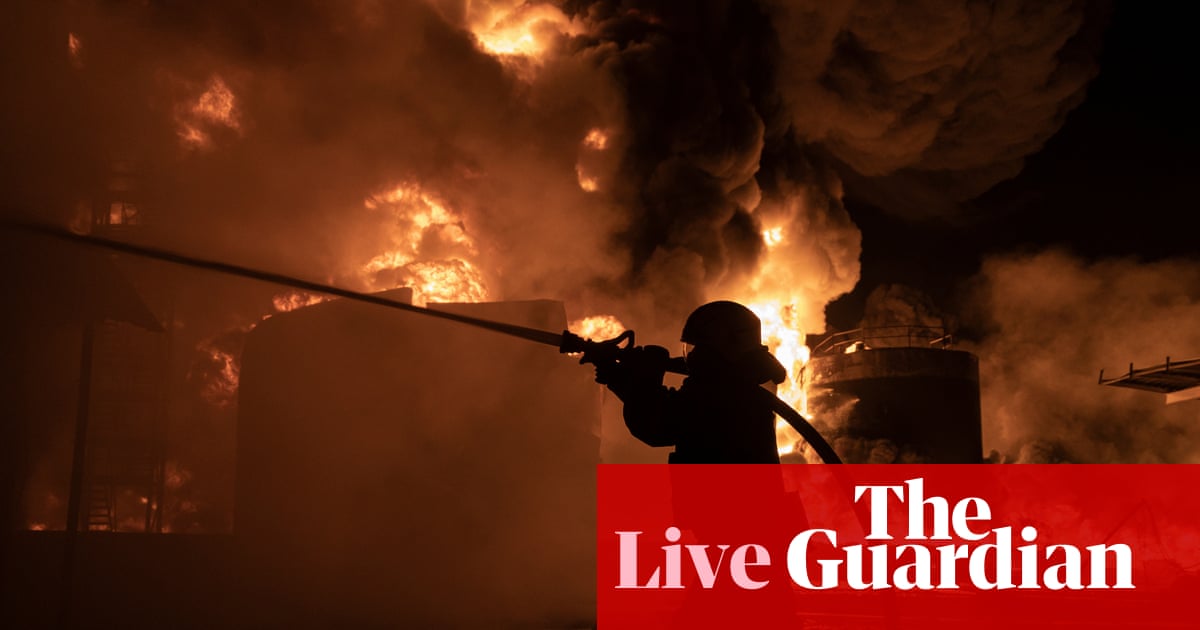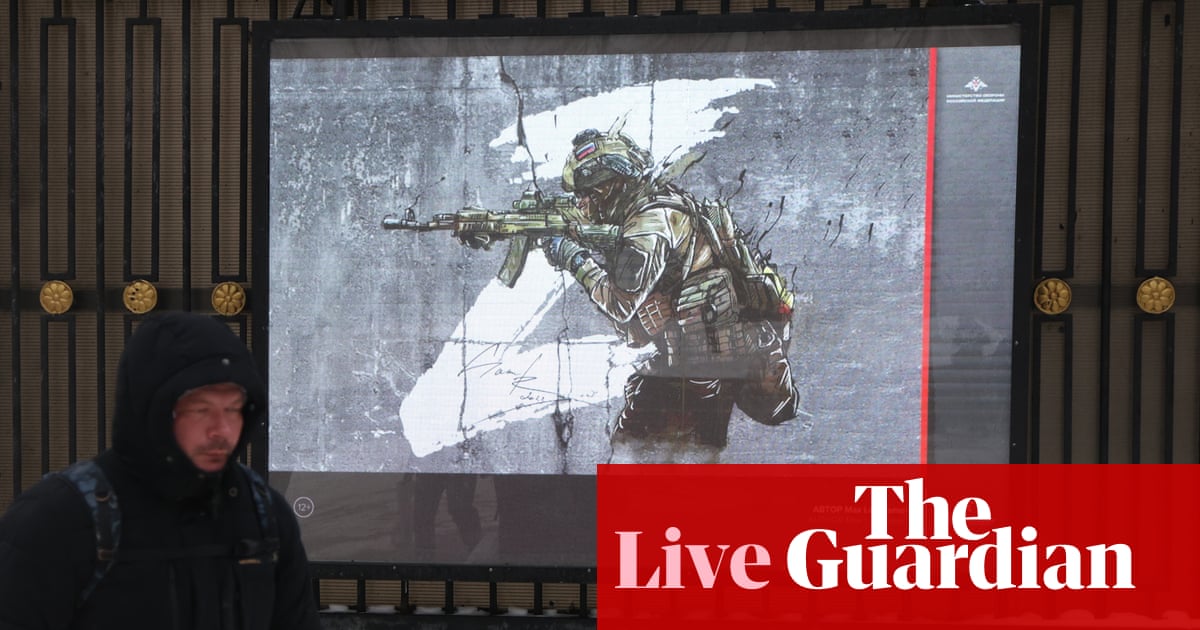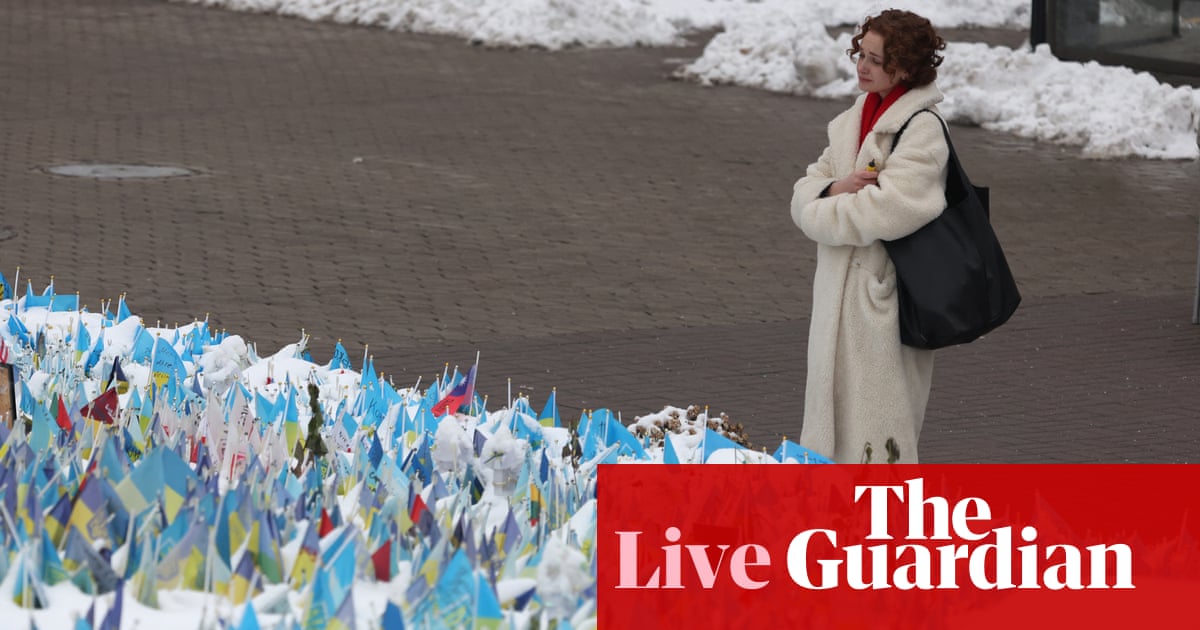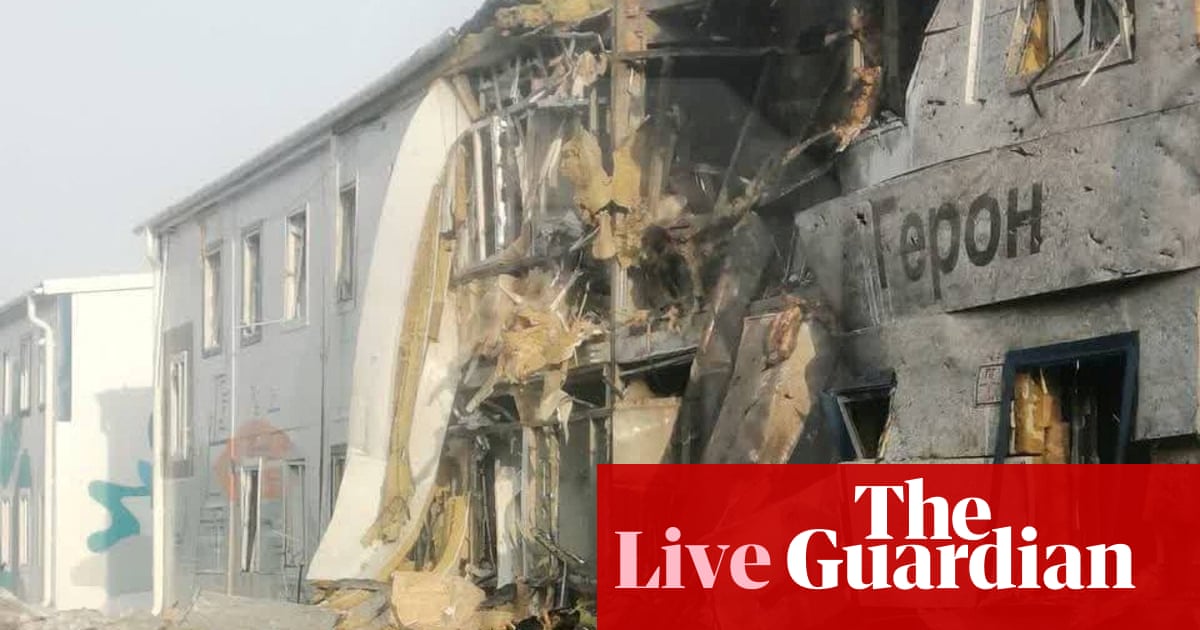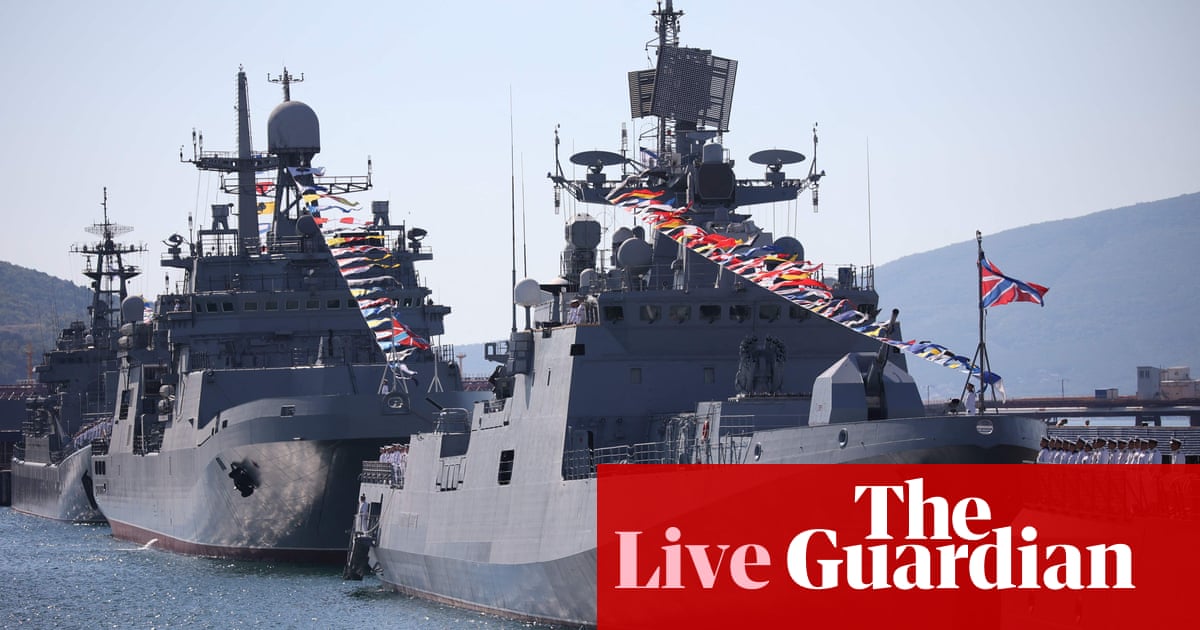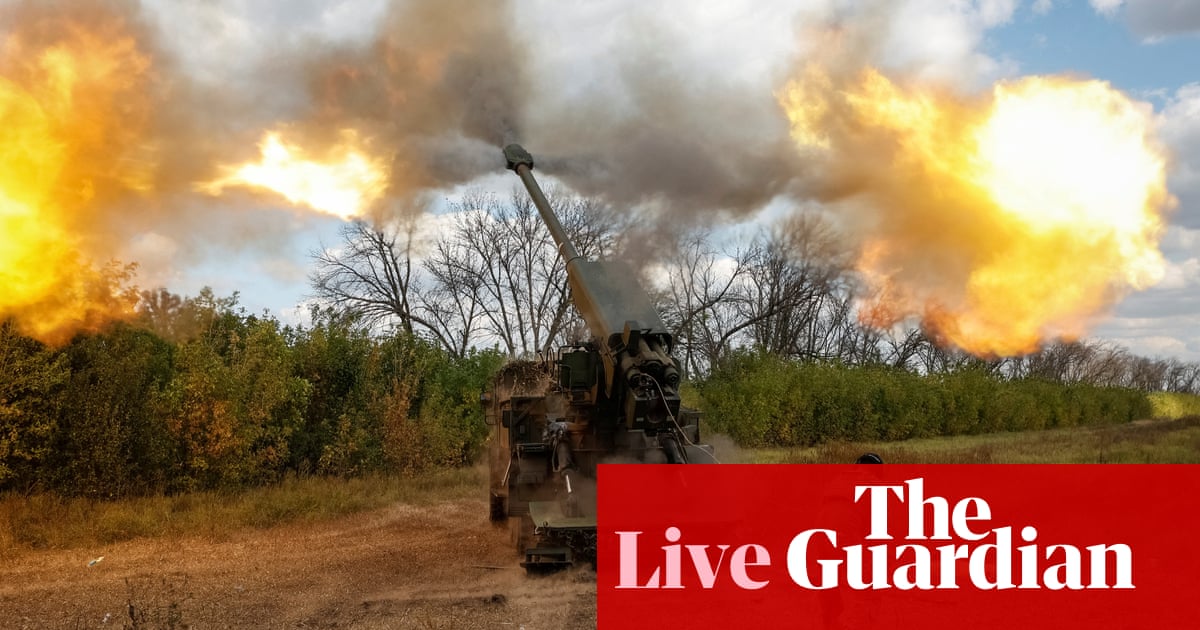
Citizens being "evacuated" in Kherson as commander of Russian forces says situation in Ukraine "tense"
The new commander of the Russian army in Ukraine, Sergei Surovikin, said on Tuesday that civilians were being “resettled” from the Russian-occupied southern city of Kherson, describing the military situation in Ukraine as “tense.”
“The enemy continually attempts to attack the positions of Russian troops,” Surovikin said in his first televised interview since his appointment last week, adding that the situation was particularly difficult around the occupied southern city of Kherson.
“Further actions regarding Kherson will depend on the developing military and tactical situation, which is not easy, and difficult decisions cannot be ruled out,” he said.
Surovikin’s statements come amid Ukraine’s ongoing counter-assault against Russia in which Kyiv has recaptured 450 square miles of land since late August.
Shortly after Surovikin’s statements, the Russian-installed head of Kherson, Vladimir Saldo, said that some civilians were being “evacuated” in anticipation of a “large-scale offensive.”
US President Joe Biden is expected to announce Wednesday that he is releasing more oil from the US strategic reserve as part of a response to recent production cuts announced by nations in OPEC+.
The announcement marks the continuation of an about face by Biden, the Associated Press reports, who has tried to move the US past fossil fuels, to identify additional sources of energy to satisfy US and global supply as a result of disruptions from Russia’s invasion of Ukraine and production cuts announced by the Saudi Arabia-led oil cartel.
The strategic reserves are at their lowest levels since 1984 after Biden in March announced the release of 180 million barrels over six months.
The White House has responded to the prospective loss of 2 million barrels a day – 2% of global supply – by saying that Saudi Arabia sided with Russian President Vladimir Putin and threatening consequences for OPEC+’s decision.
Hi, my name is Helen Sullivan and I’ll be taking you through the latest developments in Ukraine for the next while. If you have any questions, or see any news you think we may have missed, you can let me know on Twitter here.
Ukraine accuses Russia of "kidnapping" two nuclear plant workers
Ukraine’s state nuclear energy agency has accused Russia of detaining two senior employees at the Russian-controlled Zaporizhzhia nuclear power plant in southern Ukraine, AFP reports.
Energoatom said Russian forces on Monday “kidnapped” the head of information technology Oleg Kostyukov and the plant’s assistant general director Oleg Osheka and “took them to an unknown destination”.
Energoatom called on International Atomic Energy Agency (IAEA) chief Rafael Grossi “to make every effort” to secure their release.
Russian troops captured the Zaporizhzhia nuclear power plant at the beginning of March.
The IAEA, which has experts at the nuclear site, announced that Valeriy Martyniuk had been released.
Grossi welcomed his release while expressing “deep concern” at the two new detentions at the nuclear plant.
“This is another concerning development that I sincerely hope will be resolved swiftly,” he said.
The IAEA statement said Grossi was continuing consultations on securing a “nuclear safety and security protection zone” around the site.
The new commander of Moscow’s army in Ukraine has announced that civilians were being “resettled” from the Russian-occupied southern city of Kherson, describing the military situation as “tense”, write Dan Sabbagh and Pjotr Sauer.
“The enemy continually attempts to attack the positions of Russian troops,” Sergei Surovikin said in his first televised interview since being appointed earlier this month, adding that the situation was particularly difficult around the occupied southern city of Kherson.
Surovikin’s statements on Tuesday come amid Ukraine’s fierce counter-assault in Kherson, a region in the south of Ukraine that Moscow claimed to have annexed last month after staging a sham referendum.
Iran has sent trainers to occupied Ukraine to help Russians overcome problems with the fleet of drones that they purchased from Tehran, current and former US officials briefed on the classified intelligence told the New York Times.
According to the newspaper, Iranian trainers are operating from a Russian military base in Crimea where many of the drones have been based since being delivered from Iran.
Ukrainian president Volodymyr Zelenskiy said Moscow’s widespread use of Iranian-made drones in recent attacks on his country was a symbol of the Kremlin’s “military and political bankruptcy”.
“The very fact of Russia’s appeal to Iran for such assistance is the Kremlin’s recognition of its military and political bankruptcy,” Zelenskiy said in his daily address.
But, he added “strategically, it will not help them anyway”.
“It only further proves to the world that Russia is on the path of defeat and is trying to draw someone else into its accomplices in terror,” Zelenskiy said.
He didn’t commit to a proposal from his foreign minister, Dmytro Kuleba, on Tuesday that Kyiv cut diplomatic ties with Iran, AFP reports.
“We will definitely ensure an appropriate international reaction to this,” Zelenskiy said, referring to the use of the drones.
Kyiv and its western allies have accused Moscow of using Iranian-made drones in attacks on Ukraine in recent weeks. The Kremlin said on Tuesday it had no knowledge of its army using such weapons.
Tehran said it was ready for talks with Kyiv to clarify the “baseless” claims that Iran is providing Russia with the drones.
The United States, Britain and France plan to raise the issue of Iranian weapons transfers to Russia during a closed-door UN Security Council meeting on Wednesday, diplomats told Reuters.
Kyiv accused the Red Cross of “inaction” over Ukrainian prisoners held by Russia, saying a lack of visits to detained soldiers and civilians meant they were vulnerable to being tortured.
“Unfortunately, at each exchange, we see that the International Committee of the Red Cross’s inaction has led to our prisoners of war and civilian hostages being tortured daily by hunger, by electrocution,” Ukrainian human rights commissioner Dmytro Lubinets said in a presidential statement.
He said the organisation was not fulfilling its mandate to visit military and civilian prisoners in conflict zones.
Kyiv has repeatedly asked for an ICRC team to visit.
The presidency’s chief of staff Andriy Yermak said: “Ukraine expects and demands from the ICRC the appropriate determination to gain access to Ukrainian prisoners in Olenivka”.
“We do not see that the ICRC is working to protect our prisoners,” Yermak said.
The ICRC told AFP that it shared Kyiv’s frustration.
“We know that behind it there’s the anguish of families at not knowing the fate of their loved ones,” a spokesman said.
“We reiterate that we will never stop demanding access to all prisoners of war until we can see them several times where they are held,” he added.
The Republican leader in the House of Representatives has said that Congress would not “write a blank cheque to Ukraine” if his party wins next month’s midterm elections, stoking fears in Kyiv that the flow of military equipment could be cut off.
However, another senior Republican said he thought the Ukrainians should “get what they need”, including longer-range missiles than those the Biden administration has so far been prepared to supply. Analysts say the mixed messages reflect an internal debate between traditional national security conservatives and the Trumpist wing of the party, where pro-Russian sentiment is much stronger.
Kevin McCarthy, the House minority leader, told the Punchbowl News website on Tuesday: “I think people are going to be sitting in a recession and they’re not going to write a blank cheque to Ukraine.”
Iranian drones “are playing an increasingly significant role” in Russia’s strategy of destroying infrastructure, a western official told the AP:
An Associated Press photographer caught one of the Iranian drones on camera on Monday, its triangle-shaped wing and pointed warhead clearly visible, though the Kremlin refused to confirm their use.
In the past week alone, more than 100 self-destructing Iranian-made drones have slammed into power plants, sewage treatment plants, residential buildings, bridges and other targets in urban areas, Ukraine’s foreign ministry said.
A western official, speaking on condition of anonymity to discuss intelligence, said Russia is pursuing a strategy of “attempting to destroy Ukraine’s electricity network” with long-range strikes that are causing civilian casualties rather than degrading its military.
The official said the Iranian drones “are playing an increasingly significant role, although we can see that Ukraine is effectively neutralising many of them before they hit their targets.”
The US will take “practical, aggressive” steps to undermine Iran’s sale of drones and missiles to Russia, US State Department spokesperson Vedant Patel said in a daily press briefing.
He called the alliance between Russia and Iran a “profound threat.”
“The Russian army will above all ensure the safe evacuation of the population” of Kherson, general Sergey Surovikin told state television Rossiya 24, AFP reports.
Moscow has claimed to annex the region, one of four it has done so recently in Ukraine, and the city of Kherson was the first major urban centre to fall to Russian forces back in February
Vladimir Saldo, the Kremlin-appointed official overseeing the area, has said that those removed from Kherson would be sent to Crimea, a peninsula that Moscow annexed from Ukraine in 2014.
Citizens being "evacuated" in Kherson as commander of Russian forces says situation in Ukraine "tense"
The new commander of the Russian army in Ukraine, Sergei Surovikin, said on Tuesday that civilians were being “resettled” from the Russian-occupied southern city of Kherson, describing the military situation in Ukraine as “tense.”
“The enemy continually attempts to attack the positions of Russian troops,” Surovikin said in his first televised interview since his appointment last week, adding that the situation was particularly difficult around the occupied southern city of Kherson.
“Further actions regarding Kherson will depend on the developing military and tactical situation, which is not easy, and difficult decisions cannot be ruled out,” he said.
Surovikin’s statements come amid Ukraine’s ongoing counter-assault against Russia in which Kyiv has recaptured 450 square miles of land since late August.
Shortly after Surovikin’s statements, the Russian-installed head of Kherson, Vladimir Saldo, said that some civilians were being “evacuated” in anticipation of a “large-scale offensive.”
Summary
Volodymyr Zelenskiy urged his troops to take more prisoners hours after Ukraine and Russia carried out one of the biggest prisoner swaps so far, exchanging 218 detainees.
A fresh wave of explosions hit several cities across Ukraine with energy facilities among the critical infrastructure targeted. Zelenskiy claimed since October 10, Russian strikes have “destroyed” a third of power stations causing nationwide blackouts.
Kyiv’s mayor, Vitali Klitschko, appealed to residents to try and conserve electricity. He advised households to stock up on drinking water as the strikes had also affected the city’s water supply.
Two people were killed and another wounded following an attack on an energy facility in the city. Kyiv’s prosecutor’s office announced it had opened an investigation into a possible “violation of the laws and customs of war”.
The UK’s defence secretary Ben Wallace hastily cancelled an appearance before the Commons defence committee for an urgent trip to Washington DC. There he met his counterpart at the Pentagon to discuss recent developments in Ukraine.
The Kremlin said it had “no information” on whether Iranian-made “kamikaze” drones were used in large-scale attacks on Ukrainian cities this week.
Western officials shared concern Iran may extend its help to Russia beyond the supply of hundreds of drones to more sophisticated surface to surface missiles.
Russian president Vladimir Putin has no plans to end military mobilisation in Russia as the target of 300,000 has not yet been reached. While some regions including the capital had completed the process others had a way to go.
The UK’s foreign secretary James Cleverly described the latest strikes in Ukraine as “desperate acts” from a man “losing a war”. He too flew to the US to discuss a response to Russia’s aggression.
Ukraine received €2bn in financial assistance from the European Union, the first tranche of a €5bn package of support. The aid will be used to “cover urgent budgetary expenses, in particular for the social and humanitarian spheres”, prime minister Denys Shmyhal said.
The bodies of five children were exhumed in the city of Lyman, which had been until recently occupied by Russian forces. The three girls and two boys – all who had died from shrapnel wounds – were between the aged of one and 14.
Ukraine’s foreign minister announced he will submit a proposal to Zelenskiy to cut diplomatic ties with Iran as he called on EU foreign ministers to impose sanctions on Iran for helping Russia “carry out terror against Ukrainians”.
Germany’s interior minister sacked the country’s cybersecurity chief, following allegations he had turned a blind eye to a firm with links to Russian security circles. Arne Schönbohm, the president of the German Federal Office for Information Security, was released from his duties with immediate effect.
More than 400 infrastructure targets across Ukraine were damaged in Putin-orchestrated attacks. Russian strikes have hit 408 targets – 45 of them energy stations and more than 180 civilian buildings – since 10 October.
The death toll from a military jet crash in the Russian town of Yeysk rose to 15, including three children. The SU-34 figher bomber crashed into a nine-storey residential building on Monday evening, with Russia’s investigative committee putting the collision down to a “technical malfunction”.
A United Nations commission found Russian forces were responsible for the “vast majority” of human rights violations in the beginning of its war in Ukraine. Abuses were also committed by Ukrainian troops during this time, including cases of people who were out of action being shot, tortured or wounded.
Nato will deliver air defence systems to Ukraine in the coming weeks to help the country defend itself against Russian drone attacks.
The UK’s prime minister Liz Truss spoke to French president Emmanuel Macron about the recent attacks orchestrated by Russia, and their coordinated response.
Prime minister Liz Truss has spoken to French president Emmanuel Macron about the latest situation in Ukraine.
Downing Street confirmed the pair held a telephone call this afternoon about the recent attacks orchestrated by Russia, and their coordinated response.
“The leaders discussed their deep concern at Russia’s recent barbaric attacks on civilian areas in Ukraine,” a No 10 spokesperson said.
“They agreed the UK and France will continue to work closely together with allies to support Ukraine and coordinate our response to Russian aggression.
“The prime minister and President Macron also welcomed the recent opportunity to meet in person at the leaders’ summit in Prague, and looked forward to continuing to deepen bilateral cooperation.”
Nato will deliver air defence systems to Ukraine to help the country defend itself against Russian drone attacks.
Ukraine said it has faced a barrage of targeted attacks over the past week, with president Volodymyr Zelenskiy claiming 30% of power stations had been destroyed.
“The most important thing we can do is deliver on what allies have promised, to step up and deliver even more air defence systems,” Nato’s secretary-general Jens Stoltenberg said.
“Nato will in the coming days deliver counter-drone systems to counter the specific threat of drones, including those from Iran. No nation should support the illegal war of Russia against Ukraine.”
A United Nations commission has found Russian forces were responsible for the “vast majority” of human-rights violations in the beginning of its war in Ukraine.
Soldiers indiscriminately shelled areas they were trying to capture and attacked fleeing civilians in acts that could be considered war crimes, the Independent International Commission of Inquiry on Ukraine said.
Its report looked at events in the four northern provinces of Kyiv, Chernihiv, Kharkiv and Sumy from Russia’s invasion on February 24 until March.
Abuses were also committed by Ukrainian troops during this time, including cases of people who were out of action being shot, tortured or wounded.
“Russian armed forces are responsible for the vast majority of the violations identified, including war crimes. Ukrainian forces have also committed international humanitarian law violations in some cases, including two incidents that qualify as war crimes,” the UN human rights council summarised.
The death toll from a military jet crash in the Russian town of Yeysk has risen to 14, including three children, and dozens more are injured.
The SU-34 figher-bomber crashed into a nine-storey residential building on Monday evening, with Russia’s investigative committee putting the collision down to a “technical malfunction”.
It has launched a criminal inquiry into possible violations of flight rules, and investigators are questioning the pilots who managed to parachute out of the plane before it made impact with the building.
Airfield staff are also being talked to, while fuel samples and the flight recorder box are being seized.
President Putin has expressed his “deep condolences to those families who lost their loved ones” in the disaster.
More than 1,000 villages and towns without power, Kyiv says
Russian strikes have left more than 1,100 villages and towns in Ukraine without power after targeting energy facilities across the country, Kyiv has said.
Vladimir Putin’s troops have launched around 190 attacks using missiles, kamikaze drones, and artillery in 16 regions including the capital, Ukraine’s emergency services said.
More than 70 people have been killed and 240 more injured in the assaults.
“For now, 1,162 settlements in Dnipropetrovsk, Kirovogod, Zhytomyr, Kharkiv, Donetsk, Zaporizhzhia, Lugansk, Mykolaiv and Kherson regions remain cut off from electricity,” spokesperson Oleksandr Khorunzhyi told a briefing.





